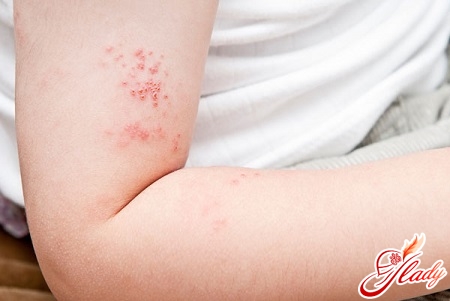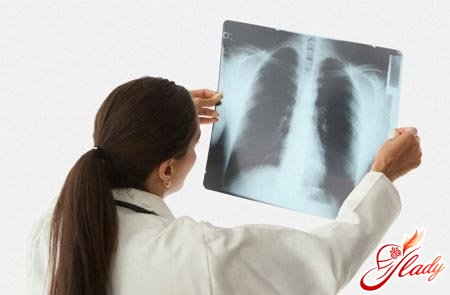
For most people, herpes is notmore than an unpleasant wound that spoils the appearance. However, this disease should not be underestimated so much. An exacerbation of herpes can be a sign of a variety of health problems, from reduced immunity to oncology. There are 8 types of herpes. One of the most difficult of them is herpes zoster, or shingles. Fortunately, there are many ways to cure this disease. In this article, you will learn what the symptoms, causes, consequences of this disease are and how to treat herpes on the body.
What is important to know about herpes on the body
The virus got its name due to its peculiarityexternal manifestation. The rash seems to encircle the body of a sick person, usually located in the abdomen, back, chest. But it can also affect other parts of the body: the head, eyes, ears, hands. The virus is very insidious and contagious. It is transmitted through contact with a person who is sick with herpes, and when using his hygiene items. A person who has shingles poses a risk of infection from the first day of the disease and until the sores on his body are covered with crusts. In some people, the virus causes very severe and serious complications. Therefore, during the active period of the disease, it is imperative to stop contact with small children, people over 50, pregnant women and people with weakened immunity, as well as with those who did not have chickenpox in childhood. It is very important to follow this rule. But if the patient has contact with a person from the risk group, the latter must immediately consult an infectious disease specialist to prevent possible consequences of infection.
Causes and complications of herpes zoster
The development of the disease is provoked by the chickenpox virussmallpox. The first time this virus enters the human body in most cases is in childhood, and then the person gets chickenpox. In all people who have had chickenpox, this virus remains in a "dormant" state in the nerve cells. But in the life of every person there are moments when the virus from the "dormant" form goes into an active one. As a rule, this occurs as a result of decreased immunity and in people over 50 years old. Studies have shown that the herpes zoster virus "lives" in the body of more than 90% of people and each person has a 10-20% risk of getting this disease throughout their life. Shingles is a very serious disease that can have serious consequences and complications. As a rule, it does not pose a serious danger to young people and usually ends in a full recovery without consequences. Older people have a much harder time with the disease. But the largest risk group is patients with reduced immunity, AIDS patients, diabetics, those who have undergone major surgeries (for example, organ transplants). The greatest danger for this category of people is that the virus can penetrate and affect the brain and spinal cord. This destroys the tissues of these organs and can subsequently lead to paralysis of the facial nerve, legs or arms, respiratory failure and even death. If the herpes virus spreads to the eyes, it can lead to the development of glaucoma, affect the cornea of the eye, as a result of which the person can go blind. Sometimes the virus spreads to internal organs, causing pneumonia and liver disease.
Symptoms of the disease
In order not to let the disease progress, it is very importantIt is important to diagnose the disease as soon as possible. If you know the symptoms characteristic of shingles, you can start treatment in time and prevent the infection from developing further. At the very beginning of the disease, when there are no obvious symptoms yet, a person may experience increased sensitivity of the skin area infected with the virus, weakness, malaise, chills. After a couple of days, the headache usually intensifies, and red spots appear on the skin, which soon turn into blisters with a clear liquid. Over the next 3-5 days, the number of blisters quickly increases, they fit very tightly together and can cover significant areas of the human body. Then the blisters begin to burst. They leave behind small ulcers, which soon become covered with a crust. The ulcers heal completely within 10-30 days. Even after the ulcers have healed, marks may remain on the skin - light or dark spots. They usually disappear over time, but in some people they may remain forever. Sometimes the signs of herpes differ from those described above: a rash may not appear, but the area of skin affected by the virus will hurt very much. The signs of herpes on the eyes are somewhat different. In this area, it is very insidious, since it can remain unnoticed for a long time. The following symptoms may be a reason to worry and see a doctor: a scratch or blister on the cornea of the eye, itching and pain in the eye, a sudden decrease in visual acuity. Herpes in the ear is also very dangerous. Infection may be indicated by a blistering rash on the ear, pain, nausea, vomiting, ulcers on the palate and tongue, paralysis of the facial muscles, pain in the eye, exacerbation or deterioration of hearing. If at least one sign appears, immediately contact an ENT or infectious disease specialist! In any case, if you notice any symptoms of the disease, immediately contact a doctor, since such signs indicate some kind of disease. The sooner you contact a specialist, the sooner you will be diagnosed and treated, and the sooner the disease will subside. It is worth contacting a general practitioner, who can give a referral to an infectious disease specialist or dermatologist.
Methods of treating herpes on the body
Despite the fact that herpes is on the body -the disease is dangerous, it is curable. It is easiest for young people. As a rule, it does not even require treatment and goes away on its own within two weeks. But patients from the risk group should receive full and correct treatment prescribed by a specialist. First of all, after diagnosis, the doctor prescribes antiviral therapy. As a rule, Acyclovir, Valacyclovir or Famciclovir are prescribed in the form of tablets or injections. This promotes a faster recovery and also relieves pain. On average, therapy is carried out for 7-10 days. The dosage of the drug is prescribed by the doctor individually for the patient. To relieve pain at the onset of the disease, the doctor can prescribe painkillers along with antiviral drugs. If the pain is moderate, the doctor can prescribe Aspirin, Ibuprofen, Paracetamol or Lidocaine in the form of a gel. For severe pain, Oxycodone, Gabapentin and other drugs will help. In any case, doctors themselves note that it is absolutely impossible to tolerate the pain caused by the virus. Sometimes after recovery, the pain may remain for some time, from several days to several months. They also cannot be tolerated, and it is imperative to consult a neurologist. The doctor will help to create an effective therapy for post-herpetic pain (neuralgia). As a rule, in this case, drugs from the tricyclic antidepressant group, Pregabalin, Gabapentin are used.
Treatment of herpes zoster at home
It should be noted that the decision to treat herpes at home should be made only by a doctor. In this case, it is very important to strictly follow all the rules for caring for the skin areas affected by herpes:
- do not scratch and scratch the affected skin. If there is no itching, the doctor can prescribe antipruritic;
- after each touch to the damaged area of the skin, it is necessary to wash hands thoroughly with soap;
- affected areas of the skin should not come into contact with clothing;
- in no way can one pierce the bubbles themselves;
- on fresh vials daily you need to apply gauze soaked in cool water for 20 minutes;
- When the bubbles dry, it is necessary to keep this place dry;
- in order to protect the affected skin, you do not need to stick an adhesive plaster: it will slow the healing;
- It is impossible to rip off crusts from healing ulcers.
As for treatment with folk remedies,Doctors note that they are powerless against herpes zoster. Traditional medicine is effective only in the case of simple forms of herpes, while severe forms are treated with medications.









